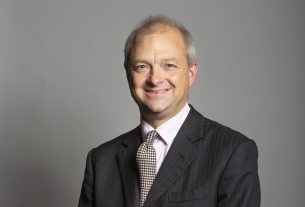The head of England’s mental health service has called on UK bookmakers to take urgent action to tackle the gambling-addiction crisis as it emerged Tory-donor-bookmakers are making millions from the NHS to treat gambling addicts.
The NHS report that 430,000 people have a “serious betting problem” and NHS England mental health director Claire Murdoch said: “The links between the sporting industry and gambling are deeply disturbing, and the tactics used by some forms are shameful.”
Murdoch’s call for action came before the Guardian revealed the owners of Betfred – one of the UK’s biggest bookmakers – are making millions from providing health treatments that include gambling addiction.
Bookie brothers are Tory donors making millions treating gambling addicts
Billionaire brothers Fred and Peter Done set up Betfred in 1967 using the “profit from betting on England to win World Cup in 1966 to finance [the] opening of [its] first betting shop with Brother Peter in Ordsall.”
They also own Health Assured – “the UK and Ireland’s most trusted health and wellbeing network“ that claims “a positive difference to over 10 million lives” and has multiple NHS trusts amongst it taxpayer funded clients.
Health Assured services include treating gambling addicts and the Done brothers – who have donated £375,000 to the Conservative party since 2016 – have in the last three years taken £5.2 million in dividends from the company.
“Of course all NHS staff should have access to mental and wellbeing support but this looks like an unacceptable conflict of interest,” said shadow health secretary Jon Ashworth. “Corporate gambling interests should be nowhere near our health services like this.”
‘The prevalence of gambling in our society is causing harm’
In 2018-19 the UK gambling industry made £14.4bn, and last year Britain’s top-paid boss Denise Coates, founder of the gambling company Bet365, paid herself £323m.
The industry regulator, the Gambling Commission said the number of children with a gambling problem is 55,000, with 450,000 children aged under 18 betting regularly in the UK.
In her letter to the Gambling Commission, Murdoch said: “As the head of England’s mental health services and a nurse of more than 30 years’ experience, I have seen first-hand the devastating impact on mental wellbeing of addiction and am concerned that the prevalence of gambling in our society is causing harm.”
Murdoch’s comments echo those made by the chief executive of NHS England Simon Stevens, who, said in 2019: “The links between problem gambling and stress, depression and mental health problems are growing and there are too many stories of lives lost and families destroyed.”
He added: “This is an industry that splashes £1.5bn on marketing and advertising campaigns, much of it now pumped out online and through social media, but it has been spending just a fraction of that helping customers and their families deal with the direct consequences of addiction.”
‘VIP experiences and free bets are proactive parts of the vicious gambling cycle’
Murdoch expressed worry about the tactics employed by gambling companies to encourage people to bet, and said: “In particular … I am concerned that offering people who are losing vast sums of money free tickets, VIP experiences and free bets all proactively prompt people back into the vicious gambling cycle which many want to escape.
“For seven decades the NHS has adapted services in response to current challenges, but we should not be expected to pick up the pieces from lives damaged by avoidable harm.”
In her letter – also sent to the chair of the betting and Gaming Council – Murdoch calls for industry regulation, the implementation of measures to minimise harm, ending the targeting of high-loss competitions and the end of “bet-to-view” deals between the bookmakers and sports authorities “which require a stake in exchange for sports streaming access”.
Earlier this week the Gambling Commission announced a ban on people being able to place bets using credit cards. In 2019 the NHS announced plans to open “up to 14 new clinics” with specialist face-to-face treatment for gambling addiction while also opening the National Problem Gambling Clinic in London the same year to provide young people (aged 13-25) specialist help to deal with betting addiction as part of “an expansion which will also ramp up treatment for adults.”




